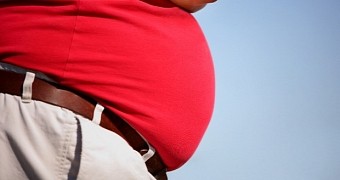There are millions of people in this world who would do just about anything to lose even a little weight, either for medical reasons or because they think this would make them feel better in their own skin.
The thing is that, for plenty of individuals, run-of-the-mill calorie-restricting diets fail to work or, if they do yield some results, it's only for a little while.
Looking to lend these guys and gals a helping hand, a team of researchers turned their attention to genetic engineering and created bacteria that, when in the body, produce a slimming molecule.
In a series of experiments performed on laboratory mice, the molecule was shown to aid in lowering body fat and fighting diabetes by suppressing hunger and making it easier to control appetite.
Bacteria living in the gut influence a person's weight
Studies carried out over the years have shown that the bacteria population found in the guts of individuals of a normal weight is different to that found in the entrails of overweight or obese people.
Hence, it was suggested that it might be possible to promote weight loss and prevent obesity simply by altering the bacteria population living in the guts of one individual or another.
With this in mind, specialists at Vanderbilt University got to work genetically engineering bacteria able to cough out special molecules dubbed NAPEs (N-acyl-phosphatidylethanolamines, if you prefer).
When in the body, NAPEs are converted into NAEs (that's short for N-acyl-ethanolamines), which study leader Sean Davies and fellow researchers scientists describe as appetite-suppressing molecules.
Word has it that, when introduced in the bodies of several laboratory mice, the genetically engineered bacteria helped the rodents keep their body weight in check despite being kept on a high-fat diet.
Thus, the researchers say that over the course of 8 weeks of treatment the mice that had obesity-fighting bacteria added to their water gained 15% less weight than the control group.
What's more, these lucky rodents remained rather fit for about 12 weeks after the Vanderbilt University teat stopped spiking their water with NAPEs-making bacteria.
The bacteria could have the same effect on people
As you've probably figured out, the science-made slimming bacteria were not created in a desperate attempt to rid the world of overweight and obese mice with a soft spot for fatty cheese.
On the contrary, the Vanderbilt University specialists hope to use such microorganisms to help people lose weight, especially since obesity is known to correlate with heart disease and even cancer.
“We think that this would work very well in humans,” study leader Sean Davies commented on the outcome of his and his colleagues' mice experiments, as cited by Science Daily.

 14 DAY TRIAL //
14 DAY TRIAL //